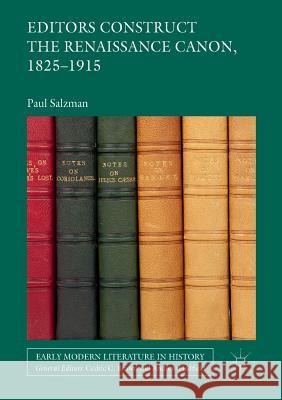Editors Construct the Renaissance Canon, 1825-1915 » książka
topmenu
Editors Construct the Renaissance Canon, 1825-1915
ISBN-13: 9783030085698 / Angielski / Miękka / 2018 / 167 str.
Kategorie:
Kategorie BISAC:
Wydawca:
Palgrave MacMillan
Seria wydawnicza:
Język:
Angielski
ISBN-13:
9783030085698
Rok wydania:
2018
Wydanie:
Softcover Repri
Numer serii:
000030930
Ilość stron:
167
Waga:
0.22 kg
Wymiary:
21.01 x 14.81 x 0.97
Oprawa:
Miękka
Wolumenów:
01
Dodatkowe informacje:
Wydanie ilustrowane











